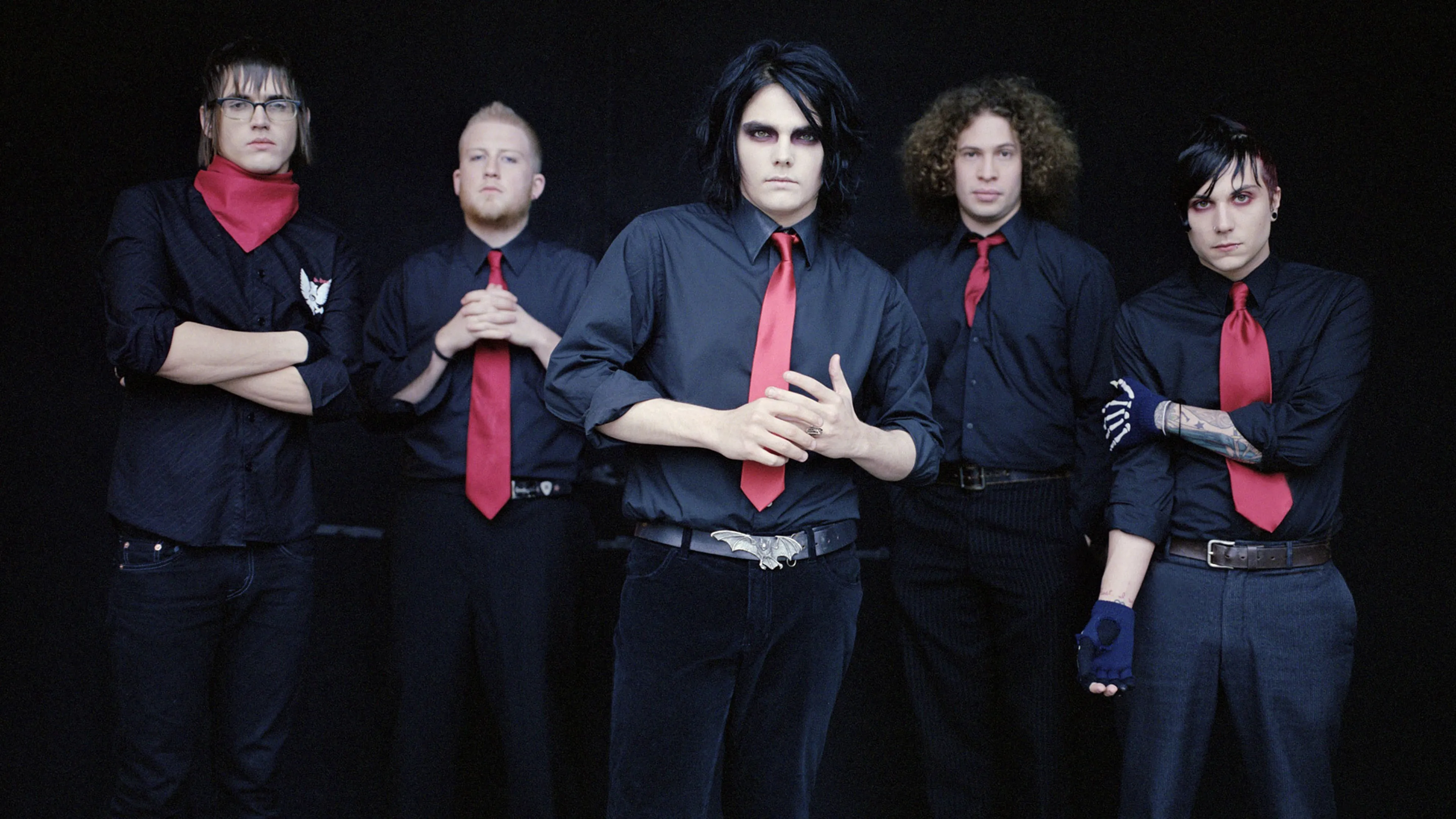It was supposed to go another way entirely. Billed as a semi-conceptual sequel to the tale of the Demolition Lovers, first introduced on the band’s 2002 debut full-length I Brought You My Bullets, You Brought Me Your Love, Three Cheers For Sweet Revenge set out on a mission to tell “the story of a man. A woman. And the corpses of a thousand evil men…”, as detailed in the album’s liner notes. But throughout the course of its creative journey, a much more personal exorcism would occur, making for a record hewn from the darkest corners of grief, pain and self-flagellation – a collection of songs ‘made from the sharpest things’ (Give ’Em Hell Kid). Fresh after celebrating their recent signing to Reprise Records, following the modest ripple of success caused by their debut, in November 2003 Gerard and Mikey’s maternal grandmother Elena Lee Rush died. Engulfed in a cloud of mourning for the passing of a lady who not only taught him how to sing and paint as a child but also bought the band their first touring van, Gerard poured his emotions into the lyrics he was writing, particularly on the album’s opening track, Helena, named in her honour.
“It’s a really angry open letter to myself,” he explained of its sentiment, as part of the band’s first appearance on the cover of Kerrang! a few months later. ”It’s about why I wasn’t around for this woman who was so special to me, why I wasn’t there for the last year of her life. Self-hate is always a big part of the lyrics. I don’t know why, but I’ve always hated myself. Hopefully that self-hate is growing into something else now; hopefully it’s grown into caring about myself and wanting to stay alive.”
Until then, death had circled around the band as a kind of caricatured plot device; as something that suited their image as sullen sorts drawn to the mystique of the darker edges of human experience, rather than something tangible. In lighter exchanges with Kerrang! pre-dating Three Cheers For Sweet Revenge’s release, the frontman goofily talked about playing with ouija boards, and about his misspent youth getting drunk in cemeteries. Suddenly, however, death was all too real. It was then he decided to get sober – a period he describes as one of the most difficult of his life. But something inside was telling him this was the band’s shot at the big time – that there may not be another. “When I quit drinking I could see myself clearly, and I wasn’t sure how much I liked it,” he reflected. It wasn’t just Gerard who could sense something extraordinary was afoot, either. Producer Howard Benson had an inkling that this was a band unlike many others – particularly when it came to the presence, talent and charisma of their creative fulcrum. “I always look for a star in a band,” he told Kerrang!, “and Gerard was certainly that.”
